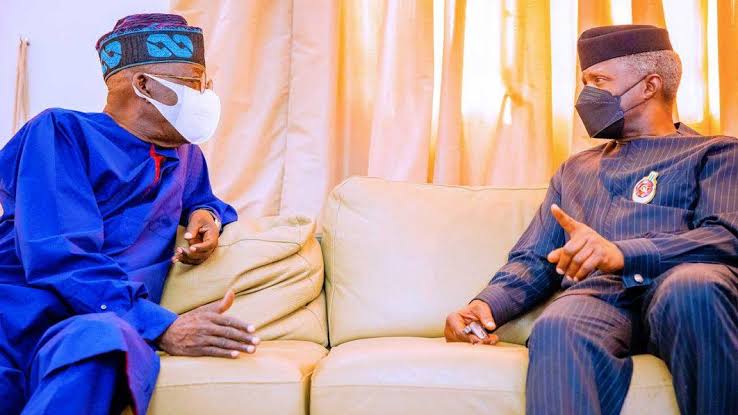15 May 2022
The Vice President is understandably enduring a pretty difficult time on the campaign trail. A complete political novice before 2014, the VP has created for himself a situation in which his first ever solo campaign isn’t just for the biggest office going; it is also being fought against his erstwhile benefactor who happens to be a veteran of a fair few scraps over the course of his long (and largely successful) political career. Like being asked to predict the outcome of a teenage central defender making his debut in the Champions League final against peak Cristiano Ronaldo, it has not been a surprise to most expert observers that the VP’s campaign has come to resemble a slow moving train-wreck.
The evident contrast between the campaigns of the Vice President and his most formidable opponent, Bola Tinubu, has, at times, been excruciating. Where Asiwaju darts around the country trailed by former Governors, serving Senators, a Speaker or two, a few elder statesmen and even a couple of known “Presidency” figures, the Vice President seems only to be followed by his own staff, led by the erratic and somewhat unpopular Babafemi Ojudu.
The contrasts do not end there. When Asiwaju and his distinguished entourage arrive in a given State, the Governor and the all important delegates are often visibly unable to contain their excitement. Asiwaju has now been unanimously endorsed by delegates in Niger and Kaduna to go with his ringing endorsement in March by members of the National Assembly. The Vice President, meanwhile, finds himself having to deal with a fresh indignity each day; whether he is being snubbed by the top brass in the state or his people having to walk back their, shall we say, eager claims on social media about their principal being endorsed by certain figures who invariably deny ever having said anything of the sort. While Asiwaju is racking up rigning endorsements from those who actually have a say in this month’s presidential primary, the Vice President has had to make do with the gentle encouragement of ‘ordinary’ Nigerians.
One would not be wrong to ascribe the VP’s difficulties to his relative inexperience. Not having done anything like this before, it is probably unfair to expect him to be able to predict where the landmines are buried before he steps on them. What is harder to explain, however, is the terribly tough time his people seem to have had coming up with a decent campaign slogan. The effort they seem to have decided upon “let’s get working” begs a few questions one would have thought the VP would prefer had gone unasked.
First, and most obviously, why has the man who has been the Vice President of the Federal Republic of Nigeria for the past seven years only now decided to start “working”. Further questions raised in this regard may be: what on earth has he been doing while he was the number two man in the country if not work; and why should we trust that the man who hasn’t really been “working” until now will indeed “get working” if Nigerians decide to entrust him with the number one office.
Of course, the Vice President and his people will protest that the above interpretation of their chosen slogan is deliberately facetious. They’d argue that he has achieved quite a bit working side by side with his boss, President Muhammadu Buhari. But this contention only leads to another question; if he truly believed in the Buhari administration and its achievements, why characterise his candidacy as the start of something new? If he was genuinely convinced by his claims that Buhari has been a success, why would he choose not to position himself as the continuity candidate?
For all his professions of loyalty to President Buhari and of fealty to his vision, the Vice President’s true feelings towards his boss are exposed by his chosen slogan. He may never say so openly, but that slogan betrays his acute awareness of the failings of the administration of which he has been a part for seven long years. Ultimately, it is nothing short of an implicit rebuke of the President and his leadership these past seven years. When all is said and done, the VP’s message to Nigerians is that he has had his hands tied behind his back but if freed, he believes he can right the good (but listing) ship Nigeria.
This brings us neatly to the final and most important question of all; should we believe him? The answer is a resounding no. If the VP could not, in the course of seven long years, figure out how to be even moderately effective within the Buhari administration, there is no reason to believe he has what it takes to handle the responsibility of the top job. Would Tinubu, for all his faults, have found life as the Vice President as difficult? Does anybody believe he would have been as unsuccessful as the VP evidently has? When all has been said and done, the VP was handed a golden ticket on a silver platter. He knows he has squandered it. Yet still he expects Nigerians to give him another one. Unfortunately for him, we are not so easily duped.

